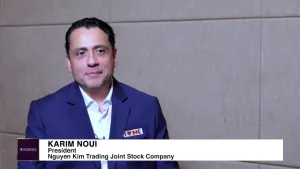
ASEAN business outages cost $2.5m per hour, higher than global average
Each hour of downtime costs firms at least $500,000.
High-business-impact outages in ASEAN countries cost a median of $2.5m per hour, 32% higher than the global average of $1.9m per hour, a report by New Relic showed.
The survey, which covered over 1,700 technology professionals from 16 countries, revealed that 80% of Singapore respondents saw improvements in Mean Time to Resolve (MTTR) after adopting observability, the highest rate amongst the countries surveyed.
Engineering teams in ASEAN spend about 30% of their time addressing disruptions, which equates to 12 hours per week. The leading causes of unplanned outages over the last two years were network failures (35%), third-party or cloud provider issues (29%), and human error (28%).
Outages remain frequent, with about a third of ASEAN companies experiencing them weekly. Around 87% of respondents estimated that each hour of downtime costs their firms at least $500,000, New Relic said.
Despite the adoption of observability solutions to address these challenges, firms still face difficulties, particularly in tool consolidation.
For example, 27% of ASEAN respondents rely on multiple monitoring tools, and 22% still use manual checks or tests. Only 18% detected outages using a single observability platform, although Singapore leads with 30% achieving this.
Tool consolidation is gaining traction, especially in Indonesia, where 40% of respondents reported full-stack observability, the highest rate in the region.
Additionally, 65% of Indonesian firms have deployed 10 or more observability capabilities, compared to just 20% in Singapore. Key challenges hindering full-stack observability in ASEAN include complex tech stacks (36%) and insufficient budgets (30%).
The report identified several trends driving observability adoption, including the rise of artificial intelligence (38%), the integration of business applications, and the shift to multi-cloud environments (34%). Security monitoring (55%) and infrastructure monitoring (54%) are the most commonly deployed capabilities.
Observability is delivering a strong return on investment (ROI) for many firms, with 80% of ASEAN respondents spending $1m or more on observability annually. Malaysia leads the region with a median ROI of 302%, followed by Thailand at 300%, and Singapore at 258%.
In total, 87% of respondents reported their organisations derived at least $1m in value annually from their observability investments, with 42% citing reduced security risks and 37% noting improved system uptime and reliability.
ASEAN respondents were more likely than their global counterparts to view observability as a key enabler for achieving core business goals, with 62% agreeing, compared to 50% globally, New Relic added.



















 Advertise
Advertise










